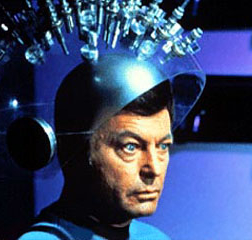Mechanisms checked for mental re-wiring
 Another exciting medical development has blurred the lines between real life and Star Trek.
Another exciting medical development has blurred the lines between real life and Star Trek.
New techniques have allowed researchers to selectively re-wire the brain without even touching it, using transcranial magnetic stimulation (TMS) for a new set of possible treatments.
In Star Trek, doctors to wave medical devices around the heads of their patients to diagnose and treat issues.
While this day may still be some way off, transcranial magnetic stimulation (TMS) of the left dorsolateral prefrontal cortex does treat symptoms of depression in humans, though relatively little is known about how exactly TMS produces these beneficial effects.
In order to advance the understanding of the possible antidepressant mechanisms of TMS, researchers in the US undertook a new project.
They used functional magnetic resonance imaging in 17 depressed patients to measure connectivity in the CEN and DMN networks both before and after a 25-day course of TMS. They also compared the connectivity in the depressed patients with a group of 35 healthy volunteers.
They found that TMS may act in part by selectively regulating network-level connectivity.
It appears that TMS can create new interactions between two large-scale neuronal networks, the frontoparietal central executive network (CEN) and the medial prefrontal-medial parietal default mode network (DMN), which both play important roles in emotion regulation and cognition.
“We found that connectivity within the DMN (default mode network) and between nodes of the DMN and CEN (central executive network) was elevated in depressed individuals compared to healthy volunteers at baseline and normalized after TMS,” Dr Conor Liston, Assistant Professor at Weill Cornell Medical College said.
“Additionally, individuals with greater baseline connectivity with subgenual anterior cingulate cortex – an important target for other antidepressant modalities – were more likely to respond to TMS.”
The article is "Default Mode Network Mechanisms of Transcranial Magnetic Stimulation in Depression" has been published by Elsevier.








 Print
Print